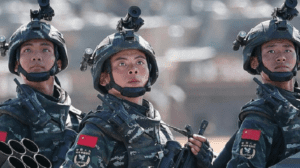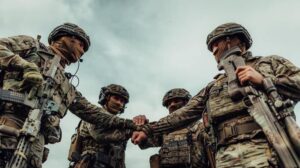
Oil prices rise on Monday after a significant fall on Friday and following the results of the entire past week.
Market fears associated with a possible decrease in demand for energy resources in the world remain, and this factor is likely to continue to put pressure on the oil market, Bloomberg notes.
Chinese President Xi Jinping, speaking at the 20th Congress of the Chinese Communist Party (CCP), which opened on Sunday, signaled that the country’s authorities would continue their tough policy to contain the spread of COVID-19, which has already seriously weakened the country’s economy this year.
The cost of December futures for Brent crude on the London ICE Futures exchange by 8:10 pm on Monday is $92.31 per barrel, which is $0.68 (0.74%) higher than the closing price of the previous session. As a result of trading on Friday, these contracts fell by $2.94 (3.1%) to $91.63 per barrel.
The price of futures for WTI oil for November in electronic trading on the New York Mercantile Exchange (NYMEX) rose by this time by $0.62 (0.72%), to $86.23 per barrel. By the close of previous trading, the value of these contracts fell by $3.5 (3.9%) to $85.61 per barrel.
As a result of last week, Brent fell by 6.4%, WTI – by 7.6%.
“The momentum we see today is likely to be short-lived as there is no clear reason for a rally,” said Vanda Insights founder Vandana Hari. “Investors may now be seeing profitable opportunities in the market after last week’s sharp drop.”

During his speech at the 20th Congress of the Communist Party of China (CCP), which opened on Sunday, Chinese President Xi Jinping announced his desire to develop the Chinese Armed Forces at a faster pace.
“We will work faster to modernize military theory, training of military personnel and weapons. We will increase the strategic military potential,” the Associated Press (AP) quoted the Chinese chairman as saying.
He also promised that the CCP will make more efforts for the country’s technological development and to strengthen food security and industrial supply chains.
He noted that China will achieve technological “self-sufficiency and power” through the development of the educational system and the invitation of foreign experts. Xi Jinping also spoke about plans to launch “significant national projects,” but did not specify which projects he was talking about.
In addition, Xi Jinping called the “zero tolerance” policy for COVID-19 a success. At the same time, AP notes, he did not explain whether the authorities would change their approach in the fight against coronavirus.
It was previously reported that the 20th Congress would elect the Central Committee, which in turn would approve the members of the Politburo and its Standing Committee, as well as the list of members of the CPC Central Commission for Discipline Inspection.
General Secretary of the CPC Central Committee Xi Jinping is expected to be re-elected for a third term. This will pave the way for his re-election as President of the People’s Republic of China at the session of the National People’s Congress (NPC) in 2023.
He has been the head of state since 2013, and in 2018, at the session of the NPC, amendments to the constitution were adopted to abolish the limitation of the powers of the President of the PRC to two terms. The Charter of the Communist Party of China does not provide for a time limit for occupying the highest party post.

The command of the armed forces of Germany, as part of the planned EU mission to train Ukrainian military personnel, intends to accept 5,000 Ukrainian military personnel for training, Ntv reported on Sunday.
According to the channel, recruits will participate in basic training as part of the EU mission, while more experienced soldiers will receive special training. In particular, in the Bundeswehr, the Ukrainian military will be trained in the use of the Iris-T air defense system, the first installation of which, according to German media, Berlin has already transferred to Kyiv.
In total, the EU mission plans to train 15,000 Ukrainian military personnel.
German Foreign Minister Annalena Berbock said that at the moment she considers it more important to supply Ukraine with air defense systems, rather than tanks.
Earlier, a senior European official told reporters on condition of anonymity that a decision on the EU mission to train Ukrainian military personnel is expected to be made at a meeting of the EU Foreign Affairs Council on Monday in Luxembourg. According to him, the EU is preparing a mission, which should start functioning in mid-November. “We will train 12 thousand people and another 2.8 thousand will receive specialized training,” the official said.
The two-year mission mandate trainees will include both new recruits and experienced military personnel. There is a need for basic training and special training, the official explained.

About 13,000 Ukrainians of Jewish origin have repatriated to Israel since the beginning of Russia’s full-scale invasion of Ukraine, while the number of repatriates from Russia amounted to 26,000, that is, about one in eight Russian Jews left the country, writes The Guardian on Sunday.
According to the publication, another 35,000 Russians of Jewish origin are awaiting paperwork.
“The repatriation process has been expedited for Ukrainians who are classified as refugees, but unexpected demand from Russia has stunned the Jewish Agency, a quasi-state body that facilitates immigration… However, the work of the Jewish Agency is under threat. In July, the Russian Ministry of Justice recommended closing the organization,” – writes the publication.
The article notes that despite pressure from its Western allies to take a decisive stance, Israel tried to remain neutral in the Russian war in Ukraine, as it relies on Moscow to facilitate its military operations in Syria, but the threat of closing the offices of the Jewish Agency prompted the acting Israeli Prime Minister Yair Lapid to warn that such a move would deal a serious blow to bilateral relations.
Since 1950, Israel has experienced several waves of aliyah from countries such as Sudan, Ethiopia and Yemen, as well as an influx of more than 1 million people from the USSR and its independent republics after 1989. According to Ukrainian-born Knesset member Yuli Edelshtein, who spent three years in a Siberian penal colony, history repeats itself. “Danger has been a part of the Jewish experience in Russia for generations. Nobody will ever forget this… This time people leave in a hurry – they are driven by fear,” he said.
Russian citizens in Israel are still accepted as tourists. Five new private agencies have also opened to help Jewish Russians make aliyah. “Municipal administration offices across the country have seen a surge in the number of people looking for documents to support their claims of Jewish ancestry. Many of those turning to the authorities for help are mothers desperate to get their sons out of the country,” it said. in the article.
Source: http://theguardian.com/world/2022/oct/16/ukrainians-russians-jews-jewish-roots-flee-israel-aliyah

President of Ukraine Volodymyr Zelensky noted the strengthening of contacts with Saudi Arabia last week.
“There are significant agreements. Among other things, this is the decision of our partners to provide a $400 million humanitarian support package. This is very important,” he said in a video message on Sunday evening.
“We have the most significant relationship with Saudi Arabia in 30 years,” he said.

Major British clothing manufacturer Marks and Spencer’s has released a fun new Christmas game for the holiday season – chocolate in the form of everyone’s favorite Jenga game.
The £8 Chocolate Topple Towers is a selection of “milk, dark, white and light chocolate blocks”.
The viral clip, posted by the retailer’s employees, has already gained more than 300,000 views on the TikTok social network. It shows M&S employees taking turns removing the chocolate blocks before eating them, but without the tower collapsing.
However, people disagree on whether an edible version of the classic family game is needed. Still, it’s better not to joke with food.